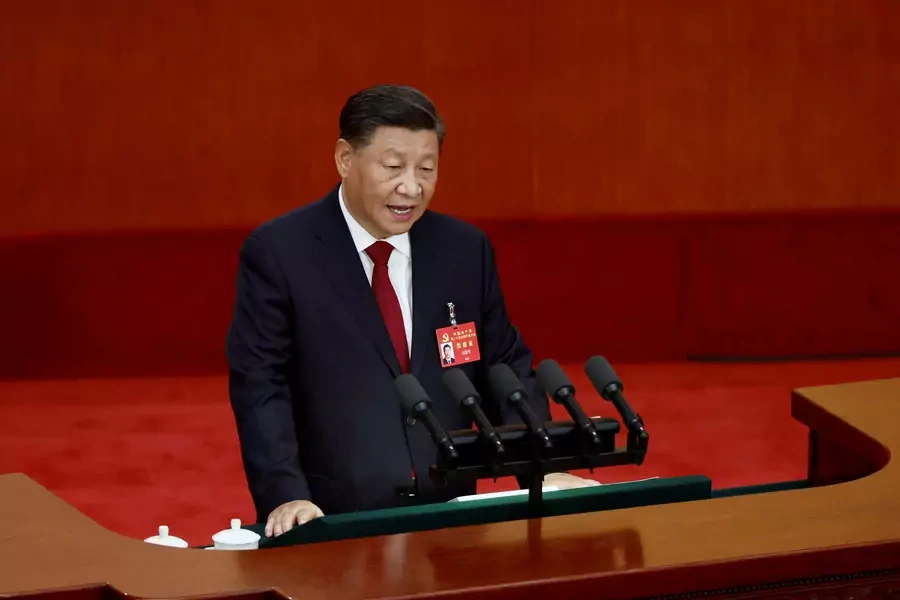My Previous Book on State Capitalism in China: Right Idea, Wildly Underestimated

In 2016, I published a book called State Capitalism: How the Return of the State is Transforming the World. The research for the book, though published in 2016, took place between 2013 and 2015. Although the book covers a broad range of countries and made the broad argument that states ranging from authoritarian regimes to democratic countries were increasingly involving themselves in economies through industrial policies, sovereign wealth funds, greater central bank intervention, and other methods, the biggest focus in the book was on China.
I do think that my broader argument that states were becoming more involved in economies certainly holds. Behold U.S. Republicans now standing behind aspects of industrial policy and ending support for free trade, interventions by central banks, the far greater role of sovereign wealth funds, and the increasing use of industrial policy in a broad range of developing states.
More on:
The biggest argument in the book that I laid out was against what many China analysts believed at the time; that Xi Jinping, the leader of China, was a potential political and economic reformer. There was minimal evidence to suggest this since so little was known about him, although he had given some encouraging speeches early on in his tenure, and his father had been a kind of economic reformer.
I argued instead that Xi would oversee a massive increase in state control in China of the private sector, the most productive part of the economy, would for the first time since Mao emphasize to other states that China had a model of development to offer other countries and that he would enforce a broad, intense crackdown on China politically, as well as putting the Party more clearly back at the center of economic policy, social policy, and all politics in a way it had not been in years.
On that broader theory, I think I was correct. However, what I (and many other analysts) got wrong was that I expected Xi to still operate in the consensus authoritarian style that had prevailed under his predecessors Hu Jintao and Jiang Zemin, and not move China toward one-man, possibly limitless rule. He has done that, unfortunately, which is terrible for the economy because it leads to a denigration of technocrats and technical experts, and even solid economic planners possibly changing their recommendations to please Xi, who has become so powerful.
I also did not anticipate that Xi would go so far in his political repression. I expected a much tougher environment for the media, civil society, academia, and the few remaining rights activists. But I did not expect massive, genocide-level campaigns against ethnic minorities like the Uighurs, the broad scope of the crackdown of any dissent at all, and the level of intense techno-surveillance --now exacerbated by Xi’s highly repressive, totally wrong headed zero-Covid policies, which cannot be scrapped because Xi still endorses them, even though they are choking China’s economy, alienating Chinese citizens, adding to unemployment especially for younger people, creating a sour mood in the country, and driving some of the best talents out of the country. I also did not expect him to go so far to destroy Hong Kong’s civil and political liberties – I thought he would recognize Hong Kong’s unique role (in the past), which benefited China as much as it did Hong Kong.
I had anticipated that Xi would direct much more bank lending to state firms, and would be developing a massive global aid program (the Belt and Road Initiative) that also directed huge amounts of capital to state firms and helped reduce overcapacity in China. However, I thought he would take a moderate view regarding the private sector which had been the driver of Chinese growth and jobs. Growth and jobs are critical to the Party’s legitimacy—as well as China’s global soft power, because of the fame of these private companies and their CEOs.
More on:
But instead, Xi has indeed cracked down hard on the private sector, hitting even the most lucrative and powerful firms, from Alibaba to Tencent. While I understand that income inequality in China is high, and Xi may want to tackle it by building an idea of common prosperity, there is no way he is going to get to these goals while also destroying the crown jewels of the Chinese private sector. And, the treatment of these firms alienates foreign investors, and that – combined with zero-Covid, China’s aggressive diplomacy, Xi’s harsh rhetoric, China's economic coercion of other countries, and other factors – has given Beijing its worst image on the global stage in decades, which is a problem for handling global affairs.
So, in sum, while I had the big picture right, I underestimated many aspects of Xi Jinping’s policies – and now China’s economy is in serious trouble, while Beijing’s relations with the world are under severe strain.
A version of this post also appeared on The Future of Capitalism Project, available here.
 Online Store
Online Store